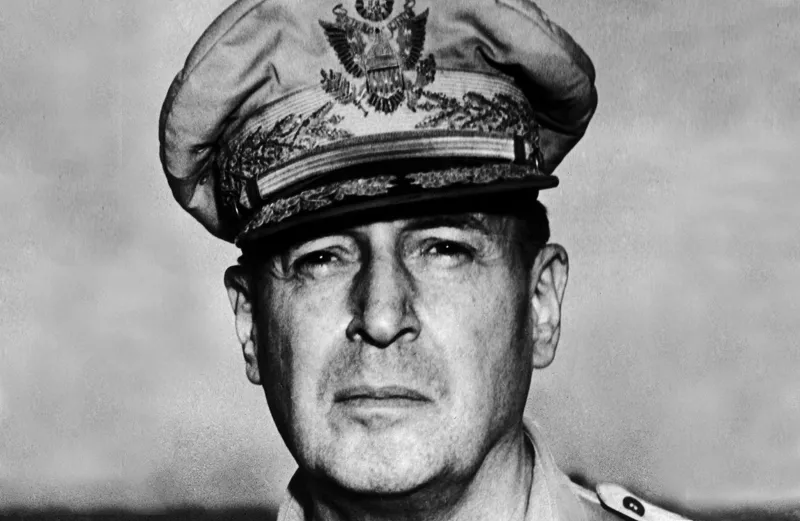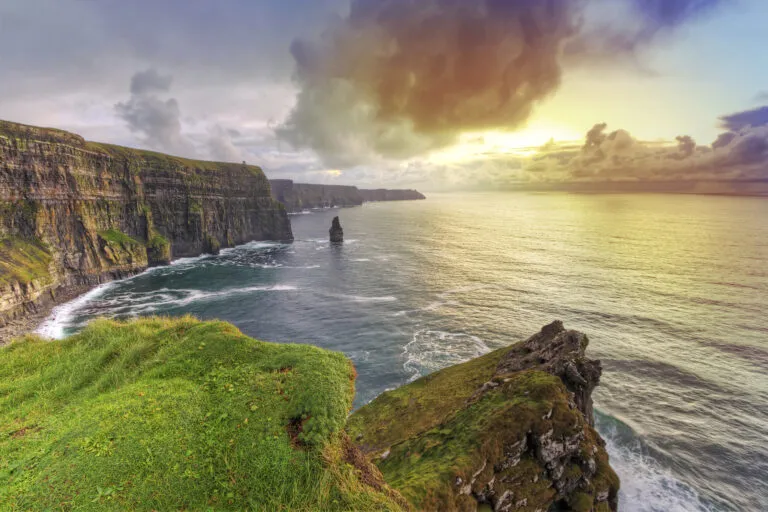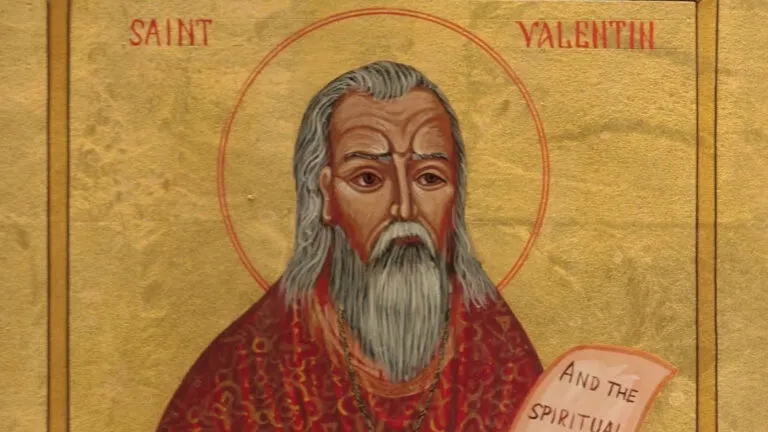In 1908 Hachiro Yuasa, a 17-year-old Japanese boy, said goodbye to his parents and sailed for the United States. Raised in an earnest Japanese Christian family, Hachiro had long dreamed of coming to America to live the simple, Christian life of an American farmer and, later, to get his university education.
On ship, thin, young Hachiro composed an imaginary letter telling of his long-awaited arrival in California. He pictured his father at dinner, holding the letter, as he bowed his head for grace:
“Our Heavenly Father, we come together again, as a family. Yet one of us is away. May Hachiro’s presence be with us through the warm letter he has written. In Christ’s name…”
ENJOYING THIS STORY? SUBSCRIBE TO GUIDEPOSTS MAGAZINE!
But Hachiro didn’t write that letter—not for eleven years. His words about America always seemed to come out bitter. He did not find the Christianity he expected. In the restaurants no one said grace. Once, at a YMCA, he laid his pocket change on a dresser in the men’s dorm before going out to look for a job. When he returned, the “Y” secretary gave him a stern lecture about the care of money.
“But why?” Hachiro wanted to know. “Isn’t this the Young Men’s Christian Association?”
And where was this respect for individuals? California in 1908 was not an easy place for a Japanese person to live. Prejudice ran high. In time, Hachiro did find work picking cherries in the fruit fields near San Jose; but his hours were from sunup to sundown and, at irrigation time, far into the night.
Evenings, when he wasn’t working in the fruit fields, he would wash dishes in the farm kitchen. There, he attacked the pots and greasy water that were to become such a part of his life.
Standing over the sink full of dirty dishes and some of his own tears, he again composed in his mind a letter about America. But again he did not write it, because it would be bitter:
“I am not a brother to Americans. Our working crew is Japanese. Only the foreman is American. He spoke to me once. He said: ‘See? Them too green. No pick ‘em.’
“But I feel better now. I have formed a layer of ice around my heart which protects me.”
After two years of farm labor during the day and dirty dishes at night, Hachiro realized he was not making the headway in English he would need to enroll in an American university. So, in 1910, still thin and frail, Hachiro Yuasa moved to Oakland and went for a few months each to grade school, then high school.
He supported himself by house cleaning, window washing, and lawn mowing, at 25¢ an hour. He was a silent young man, moving solemnly about his chores. Hachiro liked the mechanical work—he didn’t have to talk to anyone and it gave him a chance to practice his verbs:
“I am cutting the lawn, you are cutting the lawn…I mow, you mow, he mows. We mow the lawn…”
Learn more about Veterans Awareness Month and what you can do to help.
At the end of four years in this country, Hachiro, thinner than ever, had put aside seven $10 gold pieces and learned enough English to be accepted as a freshman at Kansas State. He had reached his goal, but he wasn’t ready, even yet, to let the ice melt from his heart.
For one thing, the only work he could find was washing dishes again and cleaning floors.
Each morning Hachiro swept out laboratories in the school’s Department of Entomology. Through sheer loneliness, he went over each bit of floor three times to wipe up every speck of dust.
In time, he was given work, grinding up bones for laboratory examination. But he grasped at the opportunity, instantly buried himself in his science, still making no friends and, now, wanting none. Cut off from the human life around him, memories of the old dream about an individual’s dignity were stuffed into a forgotten corner of his mind.
What letters Hachiro’s family had from their son were brief and contained little about America.
Eleven years passed.
While Yuasa was doing graduate work in Urbana, Illinois, the Reverend and Mrs. Roger Augustine of that town decided to share their Thanksgiving with a foreign student. Hachiro was invited.
Hiding behind a shell of scholarly and scientific reserve, Hachiro arrived at the modest home. But at the door he was greeted by a real smile, and Mr. Augustine took Hachiro’s hand in both of his.
Hachiro smiled back reluctantly, on his guard.
Dinner was ready. He sat down at the table with the family of four: mother, father, and two children. Behind a set smile, Hachiro was watching closely for the first sign that they might be fooling…Perhaps they really wanted him to do the dishes.
Then, carving knife in hand, the father bowed his head.
“Our Father: We have come together strangers. Let us part forever friends.”
They meant him! Struggle as he might against it, memories came flooding back of Hachiro’s own family. Grace before meals. The warm, close-knit family circle.
He looked at the faces around him. There could be no doubt about it: these people liked him, wanted to know him, thought of him not as Japanese, but as a person. An individual.
That night Hachiro wrote to his mother the letter about America he had put off for so many years.
“I was wrong when I looked for a whole government or a job or a school to respect me as an individual,” he wrote. “This is not where to find Christianity. Love and kindliness are things that happen inside each separate man. The individual, the person-to-person relationship—that is the important thing.”
Hachiro soon began to find friends. He told one of his instructors about a research problem that had been bothering him. The professor said, “Drop up to my house tonight, and we’ll go over it. I’m glad you asked me. I’ve been interested in your work.”
He told a fellow graduate student he hadn’t made many friends. “We’d like to have you in our science fraternity,” said the young man. “But you always seemed so busy.”
When Hachiro completed his work at the university, he had a new goal firmly rooted in his mind: show Japan the importance of the individual human being.
Hachiro returned to Japan in 1924 and took a post as professor of entomology at Kyoto Imperial University, the center of Japan’s scholastic life. But while his reputation as scientist and teacher quickly soared, his own dissatisfaction with the kind of education offered at Kyoto grew, too.
The formal, stereotyped schools in Japan offered no chance for the personal relationships that Yuasa had found all-important. There was no discussion, no questioning of what was spoken from the lectern. Student and teacher were separated by an impassable gulf of formality.
Finally, Yuasa could stand it no longer. He spoke out against god-shelves in school rooms, the bowing to Imperial Portraits. He took a stand for Christian principles. Young students, feverish over Japan’s successes in China, reported him to their military instructors. Hachiro began to see his name chalked on the walls:
“Down with the traitor Yuasa!”
Forced to resign, Yuasa left Japan for America. Many of his friends think it was just in time. During the years of World War II that followed, it seemed to Dr. Yuasa that his life was a failure…
Five months after the bomb was dropped on Hiroshima, Dr. John MacLean, minister of a large church in Virginia, got up and made a suggestion that the United States, by some act of love, show the world a Christianity more powerful than war.
His idea spread, and the “act of love” soon focused on a new kind of university for Japan, the International Christian University. Plans were drawn up.
The school would be for students of all faiths, an experiment in stressing the importance of the individual in contrast to the dictatorship teachings of pre-war Japan. Living-rooms in faculty apartments, for instance, would be over-sized to encourage informal discussion groups right in the professors’ homes.
On school property was planned a cooperative farm. Allowing professors to pitch in and work with their hands beside the students would develop a new kind of relation to authority.
On-campus dormitories would teach students to make friends more easily in a democratic situation.
Before long the proposed university had the backing of more American churches than had ever before cooperated on a single project. Help came, too, from labor and from management; from pacifist Quakers and from military men; from liberals and from conservatives.
In Japan, meanwhile, the response to the idea of this new school has been amazing. Out of a crippled economy, Japanese people in 1949 raised over 160 million yen (about $450,000) for the building fund, 95% of the money coming from non-Christians. This interest by Japanese of all religious faiths is very significant.
Ironically enough, the site chosen for the school was where an aircraft factory turned out fighters during the war, a few miles from Tokyo. There, last April, the entire Orient watched as International Christian University was formally opened amidst much fanfare.
But for one man the real christening of the University is taking place this month. On campus and in his home he is celebrating Thanksgiving dinner. And into his home he is inviting students to share the close personal companionship.
It will be a new experience for these young students to be personally sought out by such an important man, a man who learned about individual freedom at the grass roots level of America, the man who was unanimously chosen President of this great university experiment…Hachiro Yuasa
Did you enjoy this story? Subscribe to Guideposts magazine.





